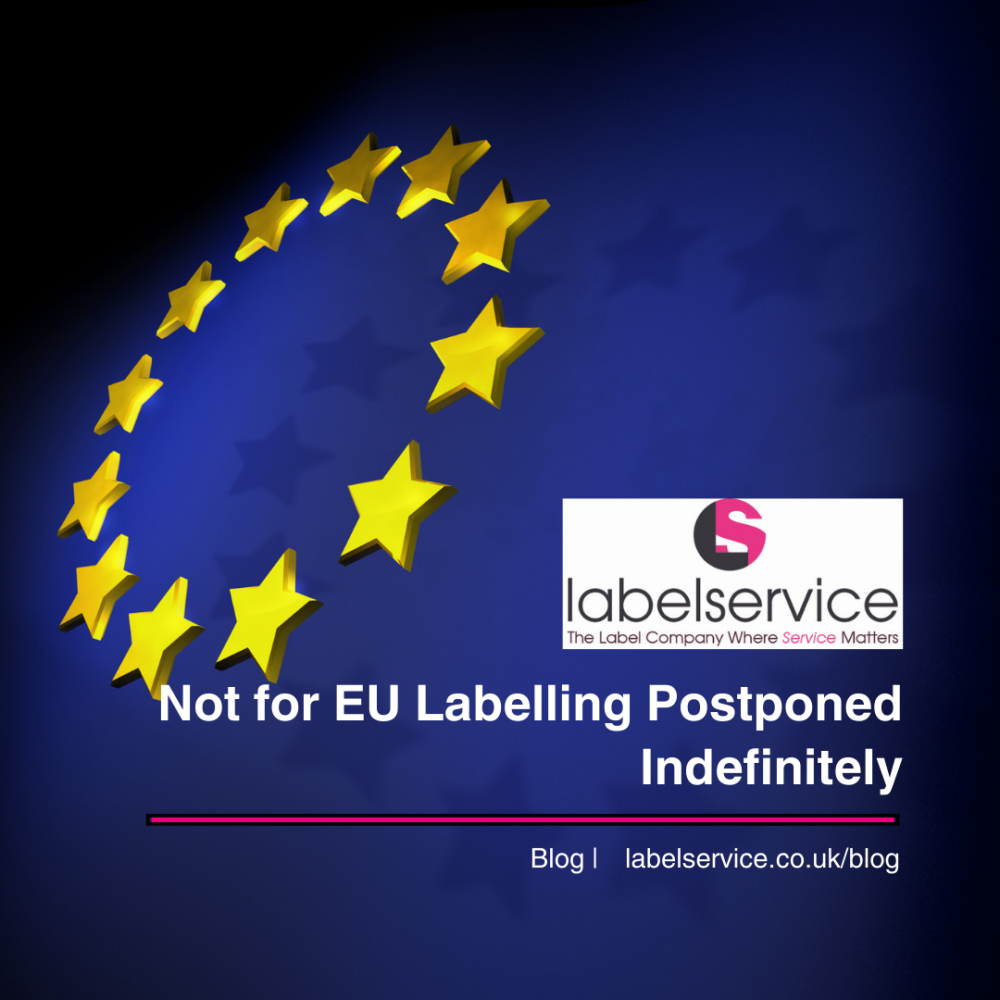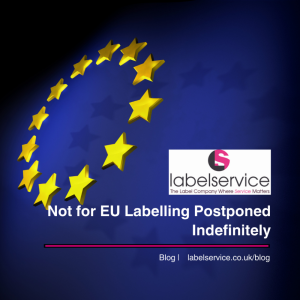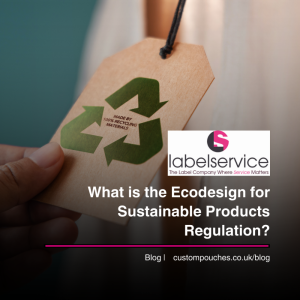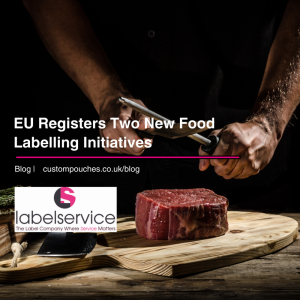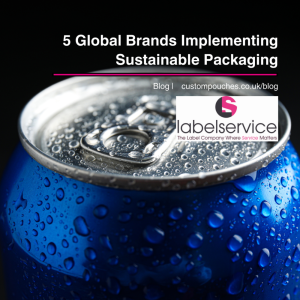Government plans to force food manufacturers to put “not for EU” labels on all meat and dairy products sold across Britain next month have been indefinitely postponed after warnings that the scheme could cause “chaos” for producers and suppliers. The government will instead review the policy, which was devised under the Conservative administration. Legislation to implement the changes has yet to be brought in.
The Food and Drink Federation had estimated the cost to the industry of meeting the new labelling requirements at up to £250m a year and warned that it would increase the price of products for shoppers.
As part of the Windsor framework agreed with the EU last year, all meat and dairy products sent from Britain to be sold in Northern Ireland have since October 2023 had to carry a “not for EU” label. The measure is designed to prevent goods from bypassing EU controls by being sent to the Republic of Ireland, which does not have a hard border with custom checks on goods coming from Northern Ireland.
The labelling was due to be extended to all meat and dairy products sold in Britain from October, as part of the “safeguarding the union” deal with the Democratic Unionist party that was agreed in January. Fruit and vegetables, fish, and composite food products such as pizza, were intended to be labelled by July 2025.
The previous government said the labels would be needed “to ensure no incentive arises for businesses to avoid placing goods on the Northern Ireland market”, and those in Northern Ireland had the same access to goods in the rest of the UK. A consultation was run during February and March but the results were never published and businesses have been left in the dark about whether the October plan would remain.
Industry Welcomes Halt of Plan
After reviewing evidence from a consultation carried out in early 2024, Government decided it would not introduce ‘not for EU’ labelling on 1st October. However, it said it would “remain committed to ensuring that it safeguards the supply of supermarket supplies into Northern Ireland on an ongoing basis.” Government said it would monitor and maintain those supplies as the implementation of the Windsor Framework continues.Government also highlighted that it would “take the powers necessary to apply ‘not for EU’ labelling in the future”, and said it would set out further information in due course.
Some trade bodies criticised the consultation, saying the government had already decided on the implementation and that the process was a “glorified impact assessment”. Nan Jones, trade policy manager at the British Meat Processors Association (BMPA), commented: “While it’s welcome news that the requirement for ‘Not for EU’ labelling has been put on hold, we have not been given any steer so far as to what the current Government is thinking. Depending on their review, it could end up back on the table.
“Frustratingly, we only received official guidance from the Government one day before it was meant to be implemented. This is another example of businesses being left in limbo until the last minute. Many companies have incurred unnecessary costs preparing for this only to find out that it’s been put on hold. This is also why alignment with the EU would be so beneficial as it would remove the issues we currently have with movements to and from NI.
“We have continuously been left with a serious lack of timely and open communication over the last few years, which has been extremely costly for businesses. I can only hope this new Government can recognise this and work to ensure communication like this can be addressed much sooner to ensure businesses have enough time to adapt and prepare.”
A spokesperson for the Association of Independent Meat Suppliers (AIMS) said: “I was surprised and slightly taken aback by this outbreak of common sense. It is good that Government have listened to industry and acted accordingly. There are several other matters which they also need to attend to as a matter of urgency, such as the EU Deforestation Regulations and the continued issues at the border and we hope that Defra and Government will also listen to industry’s concerns on these.”
Chief executive of The Food and Drink Federation (FDF) Karen Betts said: “We’re very pleased that the new Government has listened to the food and drink industry’s concerns and has responded by maintaining a flexible and proportionate approach to ‘Not for EU’ labelling. Our members are committed to supplying all our products everywhere across the UK, including to Northern Ireland. This more flexible approach will help keep prices down for consumers and help companies manage stock and supplies, as well as removing a barrier to investment in UK manufacturing.”
Judith Bryans, the chief executive of Dairy UK, said she welcomed the announcement that the marking requirement would no longer be rolled out in October. “Had this initiative gone ahead with new labels being required on pack by 1 October, it would have resulted in chaos for dairy and added significant unnecessary cost and a huge admin burden to businesses,” she said. The main concerns from businesses that sell to the UK and the EU is that the upheaval to production the changes will create, with many having to run two separate production lines for products for both regions.
How the Windsor Framework Led to the Labelling
The Windsor Framework is a post-Brexit legal agreement between the European Union and the United Kingdom which adjusts the operation of the Northern Ireland Protocol. The Framework was announced on 27 February 2023, formally adopted by both parties on 24 March 2023[1] and came into effect on 1 October 2023.[2] The UK Government announced plans for revisions to the Framework’s operation in January 2024.
The framework was negotiated to address political concerns in the UK, especially among Ulster Unionists, about the Northern Ireland Protocol.[4] Under the terms of the Protocol, Northern Ireland, unlike the rest of the UK, remains in the EU single market for goods. This put in place a de facto Irish Sea trade border for goods moving to Northern Ireland from Great Britain. The Framework changes aspects of the Protocol’s operation, particularly to ease custom checks on goods arriving from Great Britain. It gives the UK government more control over VAT rates applying in Northern Ireland and states that medicines placed on the market in Northern Ireland will be regulated by the UK and not the EU. It gives the Northern Ireland administration and UK government a mechanism to object to, pause, and potentially disapply updated and amended EU laws, mainly concerning goods.
The agreement relates to goods crossing the Irish Sea from Great Britain to Northern Ireland. It introduces “conceptual” green and red lanes to reduce checks and paperwork on goods that are destined for Northern Ireland, and separates them from goods at risk of moving into the EU Single Market. It also includes a number of agreements on medicine control, VAT and alcohol duty.
Not for EU
An element of the agreement that facilitates minimal checks on (mainly) food items being shipped from Great Britain, is the use of “not for EU” labels. This label indicates that the product is not guaranteed to conform to EU standards and thus may not legally be sold (or resold) in the EU. The requirement for these labels was to be phased in over three years. “Meat and fresh dairy products are to be labelled from October 2023, all other dairy products from October 2024, and composite products, fruit, vegetables, and fish from July 2025”. The Framework only requires these labels to be used on GB goods intended for sale in Northern Ireland, but the Government has decided that they should be used in Great Britain too, beginning in 2024. However, in September 2024, the plan to include the ‘not for EU’ label UK-wide has been dropped.
Reactions
Ireland
Leo Varadkar, the Taoiseach, welcomed the agreement and said: “The Irish Government will do all we can to make these new arrangements work in the interest of people and enterprises in Northern Ireland, here in the Republic of Ireland while protecting the European Single Market and the Common Travel Area between Ireland and the United Kingdom and the Good Friday Agreement.” Sinn Féin president Mary Lou McDonald indicated her support for the agreement.
Northern Ireland
Vice President of Sinn Féin Michelle O’Neill said “I rarely find myself agreeing with a British prime minister but access to both markets has to be grabbed with both hands”.
Democratic Unionist Party (DUP) leader Sir Jeffrey Donaldson’s initial reaction to the agreement was one in which he said progress was made in several areas with several obstacles outstanding, adding that the framework would have to hold up to the party’s seven tests on a suitable replacement to the Northern Ireland Protocol. Sammy Wilson expressed scepticism toward the Stormont brake, saying that “[DUP MPs] still fear our position in the United Kingdom is not going to be restored”. On 20 March 2023, Donaldson announced that the DUP would oppose the framework, with the party and other unionists arguing that the agreement would continue to require Northern Ireland to comply with EU law.
Alliance Party deputy leader Stephen Farry and Social Democratic and Labour Party leader Colum Eastwood both expressed concerns about the Stormont Brake and the need for dual access to the UK and European markets.
United Kingdom
On 2 March 2023, former prime minister Boris Johnson said it will be “very difficult” for him to vote for the Windsor Framework. Johnson said the deal was “not about the UK taking back control”. Former prime minister Liz Truss fully concurred with Johnson and stated that the Windsor Framework does not “satisfactorily resolve the issues thrown up by the Northern Ireland Protocol”.
On 21 March 2023, the European Research Group (ERG), a faction of Conservative MPs, denounced the framework as “practically useless” but confirmed they would not vote as a bloc against it.
On 22 March 2023, the date of the parliamentary vote, 22 Conservative MPs and six DUP MPs voted against the government legislation. The vote ultimately passed by 515 votes to 29.
International
US President Joe Biden called the framework an “essential step to ensuring that the hard-earned peace and progress of the Belfast/Good Friday Agreement is preserved and strengthened”.


